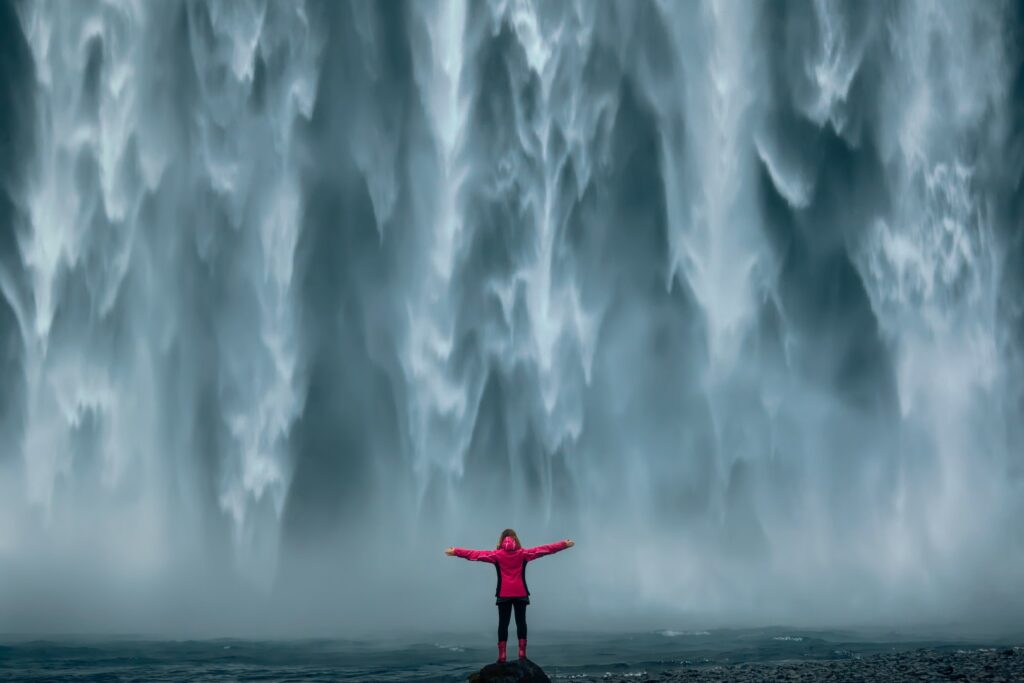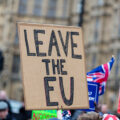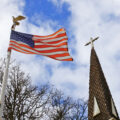Can faith help Europe’s action on climate?
Can faith help Europe’s action on climate?
Films like ‘Don’t Look Up’ and ‘Dune’ have highlighted how faith can support climate action. Our analyst Muhammad Faisal Khalil looks at whether this is possible for Europe.
This weekly comment was written by Muhammad Faisal Khalil and reflects his personal analyses and opinions, rather than those of EARS.
Recent representations of faith in popular culture show how religion can respect and protect the environment. These representations include Adam McKay’s 2021 film ‘Don’t Look Up’[1] and Denis Villeneuve’s 2021 film ‘Dune’[2]. ‘Don’t Look Up’ uses an Earth-destroying comet as a global warming satire. While the world denies, or finds comfort from, the fast-approaching comet by revelling in distraction, a young evangelical Christian named Yule not only accepts the warnings about the comet but also offers calm and wisdom with a moving prayer at the end. Far from the idea of religion as the ‘political cudgel’[3] of anti-climate politics, McKay deliberately uses Yule to remind us of ‘real faith’.[4] ‘Dune’ forces us to focus on the relationship between religion and the environment with a prophetic tale about the rise of a messiah, Paul Atreides, against the environmental destruction of a desert planet, Arrakis. Villeneuve unsurprisingly issued a harsh climate-change warning at the film’s premiere at the Venice Film Festival: “I wish it was not the case, but I think the movie will speak to the world right now more than it would have done 40 years ago … I will say about the environment … future generations will judge us … I think it’s time to get angry right now – to push, to make changes.”[5]
Protecting God’s creation
This fresh perspective on why faith matters to the environment is especially critical to the European climate discourse. Recent research shows that despite its secular veneer, this discourse benefits from faith-based actors in that they contribute to it ‘deep-rooted values’.[6] Faith, this research found, supports climate values with the idea of protecting God’s creation: nature as well as fellow humans.[7]
This contribution to climate-friendly norms was strongly palpable in Pope Francis’s 2015 encyclical on ecology, ‘Laudato Si’: On Care for Our Common Home’: “Never have we so hurt and mistreated our common home as we have in the last two hundred years … Humanity still has the ability to work together in building our common home … Truly, much can be done!”[8] Late last year, shortly after the November 2021 UN climate conference COP26, the pope celebrated Mass in the Vatican’s St. Peter’s Basilica by telling young people to “work to heal the wounds of God’s creation”[9] as “everything around us seems to be collapsing.”[10]
Recognising the ‘creation care’ concerns of faiths across Europe, including Islam and Judaism, the European Union (EU) declared in 2015 that “these tied in with those of the EU.”[11] The EU’s recognition of faith matters a lot, since its leadership role in climate action has become internationally stronger as American engagement with the Paris Agreement has weakened.[12]
Inspiring climate action
One key way in which faith can be a critical resource to European climate discourse is how it can inspire urgency. The emphasis of faith-based discourses on both nature and humans gives climate action an especially existential turn. Not only are people compelled to accept their part in climate change but they are also obligated to take action against their moral failure. For example, the UK-based Islamic Foundation for Ecology and Environmental Science states: “Calling ourselves Muslim is not enough. It says in the Koran several times, it’s about believing AND doing good deeds.”[13] This relationship of faith with action can motivate the radical change required to tackle climate change successfully.
Faith can also be used to spread radical climate action. As the Conference of European Churches argues, policies and laws need to be explained to people so that they can be brought on board.[14] Faith-based actors and institutions can help with that. Moreover, faith-based institutions can give the climate action agenda access to more people, as the Vatican Dicastery for Promoting Integral Human Development reminds us: “Access, participation is all what it is about. Without having access to and participation of people, there is no way that we can address the targets of the sustainable development goals.”[15]
On the margins of Europe’s climate policy
Despite its existing and potential contributions, faith appears to be on the margins of climate policy in Europe. The EU still does not treat faith-based actors as equals to other stakeholders. For example, it continues to meet with faith-based leaders outside of its high-level climate dialogues with other stakeholders.[16] In other words, faith is both “simultaneously institutionalized and institutionally limited”[17] in the EU.
The limited role of faith in the EU’s climate policy is arguably the result of a complex relationship between religion and society in Europe, particularly when it comes to issues of governance. It also reflects a lack of trust in faith-based support for climate action. Scientifically controversial faith-based positions on a host of issues, ranging from birth control[18] to COVID-19 vaccines,[19] place doubt over whether religion is a reliable and self-consistent ally to an issue that requires high and constant fidelity to science.
Notwithstanding these challenges, and particularly because the existential stakes are so high, faith – whether as Yule’s prayer or as Atreides’s messianic passion – can be called upon to play a role in Europe’s climate action.
This weekly comment was written by Muhammad Faisal Khalil and reflects his personal analyses and opinions, rather than those of EARS.
Interested in similar topics? Go to our Dashboard and receive free updates.
[1] DON’T LOOK UP | Leonardo DiCaprio, Jennifer Lawrence | Official Trailer | Netflix
[2] Dune | Official Main Trailer
[3] ‘Don’t Look Up’ Spoilers: Adam McKay on the End, Post-Credits Scenes – Variety
[4] ‘Don’t Look Up’ Spoilers: Adam McKay on the End, Post-Credits Scenes – Variety
[5] Dune’s Denis Villeneuve Highlights Climate Change at Venice
[6] Religion: A resource in European climate politics? An examination of faith-based contributions to the climate policy discourse in the EU | SpringerLink
[7] Religion: A resource in European climate politics? An examination of faith-based contributions to the climate policy discourse in the EU | SpringerLink
[8] Laudato si’ (24 May 2015) | Francis
[9] Pope tells young people to protect the environment as ‘everything around us seems to be collapsing’ | Euronews
[10] Pope tells young people to protect the environment as ‘everything around us seems to be collapsing’ | Euronews
[11] Religion and the EU’s external policies
[12] Religion and the EU’s external policies
[13] Religion: A resource in European climate politics? An examination of faith-based contributions to the climate policy discourse in the EU | SpringerLink
[14] Religion: A resource in European climate politics? An examination of faith-based contributions to the climate policy discourse in the EU | SpringerLink
[15] Religion: A resource in European climate politics? An examination of faith-based contributions to the climate policy discourse in the EU | SpringerLink
[16] Religion: A resource in European climate politics? An examination of faith-based contributions to the climate policy discourse in the EU | SpringerLink
[17] Religion: A resource in European climate politics? An examination of faith-based contributions to the climate policy discourse in the EU | SpringerLink






